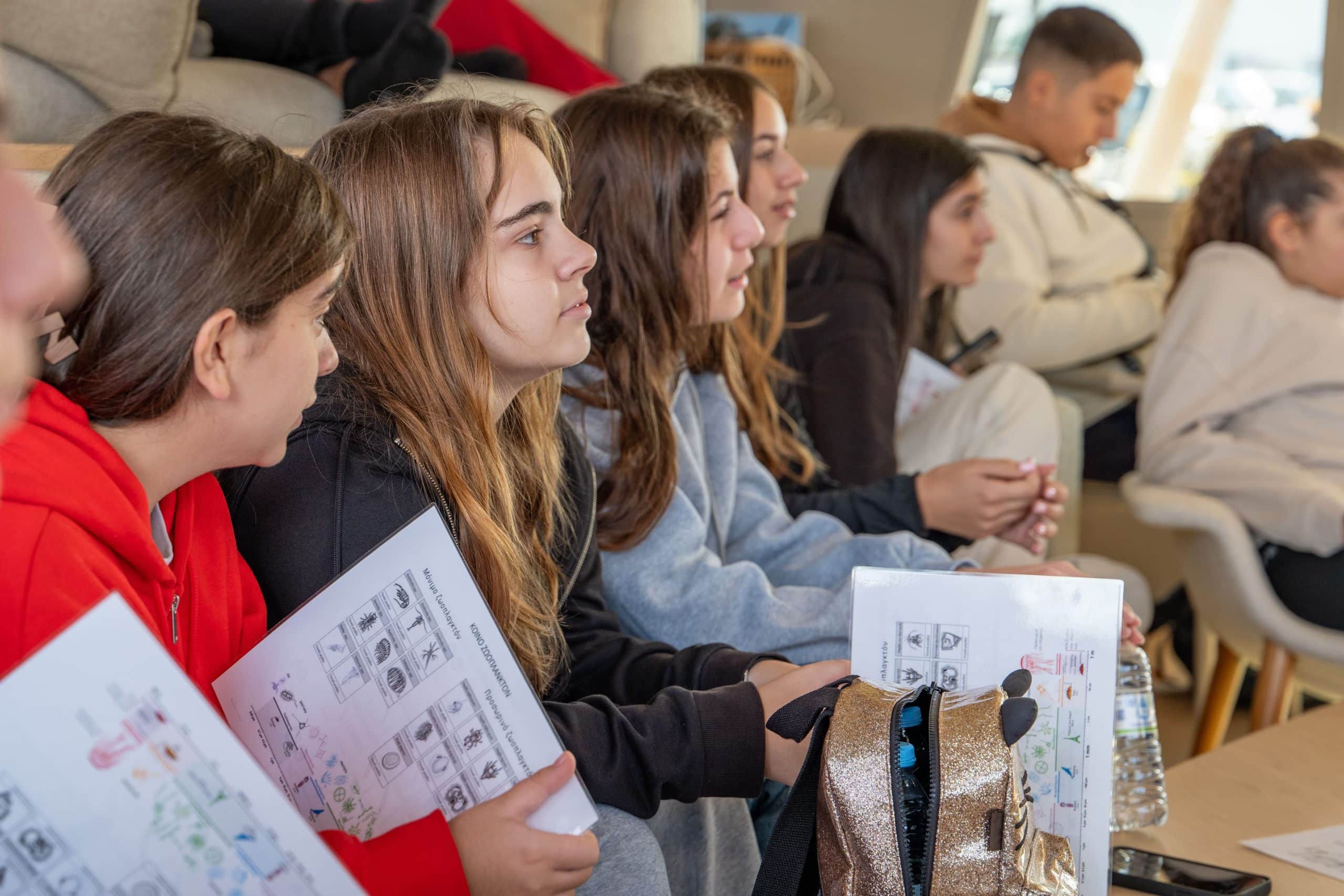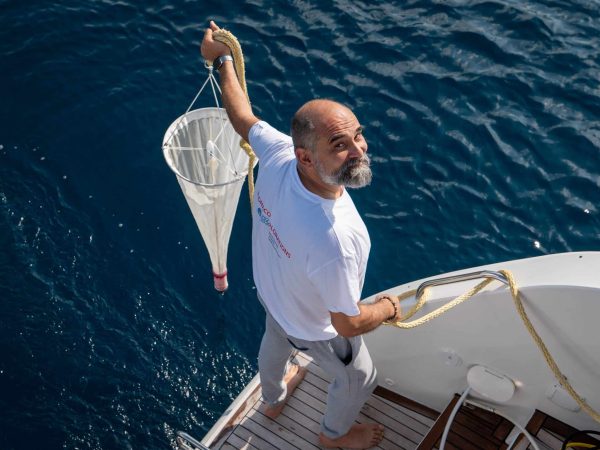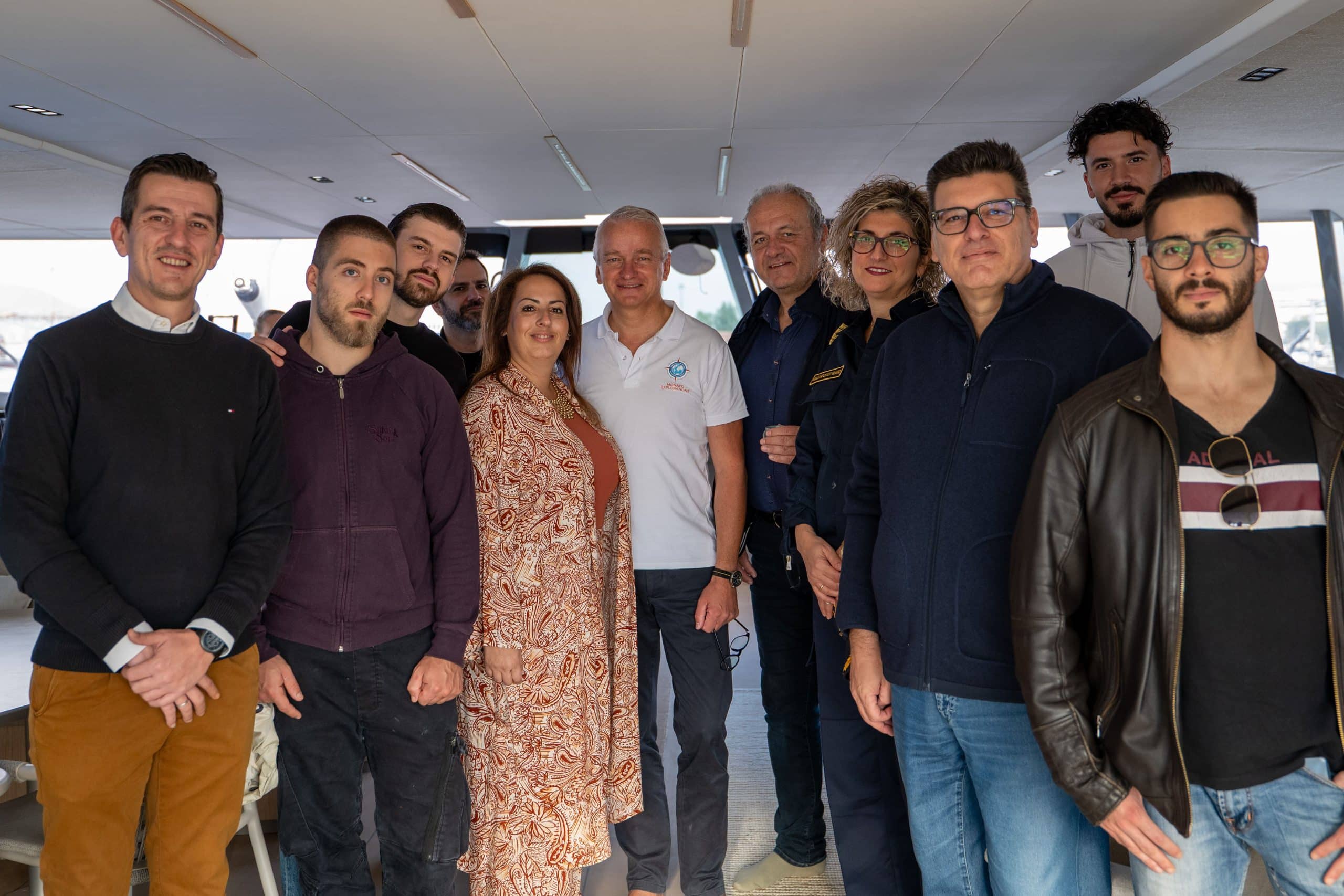October 13 to 16, 2025
Stopover in Volos: science and technological innovation in the heart of the Pagasetic Gulf
From October 13 to 16, the MODX 70-01 catamaran called at Volos, in the heart of the Pagasetic Gulf. This leg of Monaco’s Greek Explorations mission was marked by intense scientific activity.
A stopover focused on research and mediation
Moored in the port of Volos, the catamaran MODX 70-01, the support vessel for Monaco’s Greek Explorations mission, welcomed numerous visitors and school groups who came to discover the richness of the marine world.
Under the guidance of Kelly Godard, onboard scientist for the Plankto-Med project, over 90 schoolchildren took part in workshops to observe plankton, the microscopic organisms at the base of the entire marine food chain. Collected using fine nets and observed under the microscope, these samples enabled the children to discover a universe that is invisible but essential to the proper functioning of ocean ecosystems.
These moments of mediation are in line with the actions carried out throughout the mission, aimed at raising awareness among the younger generation of the beauty and fragility of the marine world.

A scientific hub in the heart of the Pagasetic Gulf
At the same time, scientific activities continued throughout the week at various sites in the Pagasetic Gulf, a privileged study zone for the researchers involved in the mission’s projects.
The team from the Centre Scientifique de Monaco has taken samples of marine sediment to quantify the presence of microplastics accumulated in the surface layers of the seabed. These analyses will provide a better understanding of the mechanisms by which micro-waste is transported, deposited and degraded in coastal environments, as well as assessing its impact on benthic organisms and local biodiversity.
For their part, engineers and biologists from start-up Cosma have deployed their underwater drone to map the Gulf’s seabed with great precision, like a veritable “underwater Google Maps”. This innovative technology makes it possible to produce detailed 3D models of marine habitats, useful for research, conservation and sustainable management of coastal areas.


Students and scientists meet
The stopover in Volos was also an opportunity to pass on and share knowledge. The Explorations de Monaco team welcomed marine biology students from the University of Thessaly for a session of exchanges and scientific demonstrations.
On the program: presentation of sampling protocols, discovery of the planktoscope and lamprey (sediment sampling instrument) and launch of BRUVS cameras, baited underwater video systems for observing and listing species present in an area without direct human intervention.
These meetings illustrate the philosophy of Explorations de Monaco: to encourage international scientific cooperation and involve young researchers in understanding and protecting the oceans.
And now, off to Syros
After this stopover, which was as dense as it was rich in encounters, the mission is now heading for Syros, the last stage of the Greek mission.
Here, too, the teams will continue their research and mediation activities, concluding a campaign of exploration under the banner of cooperation, innovation and sharing.